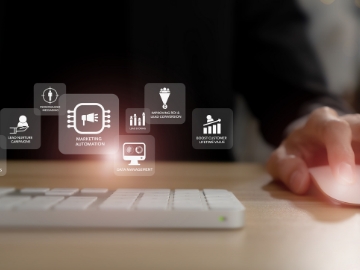How to Future Proof Your Career

What will your career look like in the next ten years? Many people may shy away from this question because no one knows what the future holds. Some people even feel uncomfortable about growing older, and that's okay.
There's no rush; an incomplete picture of your future career is better than not picturing anything. Whether you like it or not, future-proofing your job can maximize the chances of success in your chosen field.
Is it possible to future-proof a journey with an uncertain future? Yes, it's possible. But first, you need to know why.
Why Should You Future Proof Your Career?
Those who are not open to new developments might lag behind potential successes. Your plans from decades ago may work in the present context and technologies but may not necessarily work in the next five to ten years. It would be best to open yourself up to changes and new challenges constantly.
You can learn to be more self-aware about your strengths by preparing yourself for a changing workforce and making bold choices in taking career risks.
How to Future Proof Your Career?
Future-proofing your career entails several exercises that you can follow.
-
Understand the future of the industry you're in
Know where you are. Many think that technologies dictate the future, but this isn't always true. It's a consumer's behavior that determines the relevance of these inventions.
For example, as a content writer, you're probably aware of advanced writing tools that can create full-length articles in seconds. Are these writing tools sustainable? Do content servicing industries employ these tools? How can you advance your skills despite this change? Asking yourself questions like these can be an excellent way to start.
-
Describe how you would change what you do
If you're a graphic designer, you know that editing tools are easier to use. What other skills can you offer? With these, you may create several solutions to solve future problems. Maybe you can start learning other skills like animation or coding.
You may even want to stop graphic designing for clients and switch to teaching a new generation of designers. All points are valid as long as they align with your vision.
-
Describe your ideal life with your career in mind
Picture your ideal life. Would you like to live on a tropical island where you can work from home forever? Perhaps you enjoy the hustle and bustle of a busy city while enjoying weekday drinks and lunches with your friends. Would you like to travel while working? You may plan your career and personal life together.
Work and personal life may seem like two distinct parts of yourself. But let's be honest, your lifestyle also depends on your career. Your ideal life must align with your professional aspirations to achieve better work-life balance and possibly overall life satisfaction.
-
Think globally
You must think globally, even if your career aspirations are limited on a local scale. Why? Because you're living in a global village. You may not feel it, but global trends will continue to influence your career wherever you go. Thinking bigger will help you invite better things you may never have thought of getting.
-
Build your network
Building professional connections can be beneficial for you. Talk with different people on social media. You don't know what types of possibilities may lie ahead in these relationships.
Make Career Choices That Last
Future-proofing your career will require a lot of self-awareness, thought, and commitment. Because industries are continuously improving (or dying), it's essential to help you build a future where your personal needs and professional successes meet.
Some people may not have the most vivid picture of their career path, which is okay. No one is a hundred percent sure what lies before them. What matters most is the eagerness to move forward. Are you ready for your next career move? Find what's next with Career.com.



